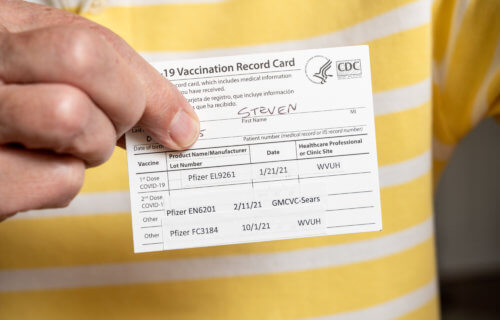RAMAT GAN, Israel — COVID-19 booster shots are now “essential” shots, according to a new study. Researchers in Israel say people need the added protection even if they had a case of coronavirus in the past.
The new research focused on COVID-19 antibody levels recorded seven to nine months post initial-vaccination. Medical researchers at the Azrieli Faculty of Medicine of Bar-Ilan University and Ziv Medical Center in Safed report even prior infection and two doses of the vaccine don’t provide as much long-term protection as a third booster shot.
Among a group of participants, COVID antibody levels dropped considerably seven to nine months after their second vaccine dose. Importantly, this also held true among young adults and those who had a COVID infection prior to vaccination.
Boosters provide 10 times the protection
Across all participants, however, a third vaccine dose sparked protective antibody levels 10 times higher than after each person’s second dose.
Some doctors and scientists alike have speculated in recent months that a single round of vaccinations is sufficient for people who have already recovered from a case of COVID-19. This latest work indicates even these individuals should take a third dose to maintain their robust antibody levels over the long haul.
“The fact that antibody levels also decline in individuals with hybrid immunity — albeit not as rapidly than among those who were never infected — challenges the previously held assumption that these people don’t need further boosters. Our study suggests that they do,” says Prof. Michael Edelstein, of Bar-Ilan University’s Azrieli Faculty of Medicine, in a media release.
Over 500 healthcare workers at Ziv Medical Center took part in this study, which began right around the time COVID-19 vaccines became readily available. Each participant submitted a blood sample every two months post-vaccination. Researchers then analyzed each sample’s antibody levels, allowing the team to keep close track of how antibodies fluctuated and changed over time. Study authors also considered other factors, such as age, ethnicity, gender, and previous infection status as well.
“Cohort studies are important because COVID-19 is a constantly evolving situation and we still don’t know who needs to be vaccinated and how frequently. This question becomes especially complicated in people who’ve already been infected when considering whether they require vaccination and, if so, how many doses,” Prof. Edelstein concludes. “Infection in itself is not enough to protect individuals over the long term.”
The study is published in the journal Clinical Infectious Diseases.


Just think how wonderful it would be if everyone got a ‘booster’ every three months, we’d live forever.